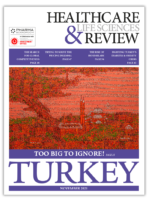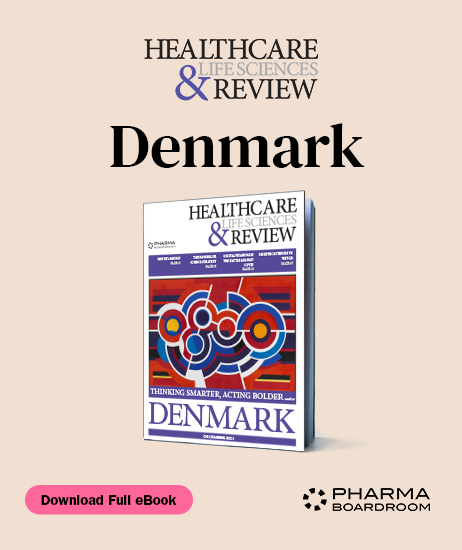 Ahead of the imminent acquisition of Baxalta by Shire, country managing director Italy Fabio Andreola shares his perspective on the rare-disease environment in Italy and how Baxalta will contribute to making the new combined company the undisputed leader in the treatment of rare diseases.
How would you assess the Italian authorities’ stance towards orphan drugs given the country’s pressing healthcare spending sustainability concerns?
In principle, all stakeholders in Italian healthcare - from centralized authorities to regional institutions - are aligned on the fact that rare diseases and orphan drugs require special attention due to the unique challenges of treating these conditions. Overall, Italy treats rare diseases very well, and patients have good access to orphan drugs relative to most other countries.
[related_story]
That said, there are some differences between this official position and what is seen in practice. While a priority for all stakeholders is to ensure that patients with rare-diseases are well treated and have access to innovative medications that can greatly improve their quality of life, in actuality many individuals within the public sector remain very focused on minimizing costs, which can be a challenge to effectively validate and communicate the value of the innovative therapies we offer. While patients inevitably get access to these treatments in nearly all cases, time can be lost when market access discussions do not move smoothly, and these delays come at a significant and avoidable cost to patient wellbeing.
As such, pharma companies in general but especially those offering therapies to treat rare diseases, must be able to demonstrate the value that their products bring to patients and the healthcare system in a highly credible and transparent way. Are such companies always good at doing this? Often not; taken as a whole, the industry promotes all innovative products quite similar even though some can bring far greater incremental benefits to patients than others. Thus, pharmaceutical companies are responsible for generating a degree of confusion within market access discussions. Ideally, companies need to be better about being selective in the products they bring to market, and differentiating them from existing therapies and treatments for a given indication.
What is your perspective on the role that rare-disease patient groups currently play in shaping health policy decisions pertaining to rare diseases?
There is certainly room for patient advocacy groups to have a more impactful role in directing decisions within the Italian healthcare system.
[Featured_in]
However, I have a few comments regarding this topic in general. First, any groups’ share of voice or influence depends on the number of individuals in that group to a large extent; for rare diseases, by definition such patient groups will be very small. Larger patient groups for more common indications are able to draw more attention from healthcare stakeholders. Thus, I see a clear need for greater cooperation between rare-disease patient groups, in the form of a federation of rare-disease patient associations, such that they can have a combined voice that is able to yield greater influence.
The second comment is that compared to the US for instance, all of Europe is governed by laws that limit contact between pharmaceutical companies and patients. In Europe, we are limited to interacting with patients on medical information only. Thus, while we and other stakeholders, including patient associations, may share common goals, often times there are limited opportunities for us to discuss these shared goals together.
On a more positive note, given the current economic challenges in Italy and the scarcity of resources to invest in healthcare, the opportunities to achieve savings and improved healthcare efficiency through more inclusive discussions are difficult to ignore. Inclusive discussions will be essential if Italy is to find effective solutions to maintain the quality and accessibility of healthcare at an affordable cost, and we are already seeing a greater degree of inclusivity now than a few years ago. It is just a matter of time until we see a more substantial shift.
While Baxalta’s portfolio now includes oncology alongside immunology and hematology, the company is a clear leader in hemophilia. How is this global leadership visible in Italy?
Baxalta has a long legacy of leadership in Hemophilia. We were the first company to bring a plasma factor VIII product to market, the first recombinant factor VIII, the first third generation factor VIII, and we have a bypassing agent which is still recognized as one of the best treatments available for certain hemophilia patients. We are very proud to be the company that has lead the way in this field for many years, repeatedly raising the bar and improving the therapeutic solutions available to hemophilia patients; not just new drugs, but safer, more effective products and service offerings that have had a significant impact on patients’ lives.
In this respect, Italy has been viewed as a benchmark internally for the Baxalta global organization, as we have been among the first to implement new ways of offering services, such as providing nurses in the patient’s home, to rehabilitation support, physio therapy, and innovative telemedicine solutions to improve the overall quality of care for our patients. This is one of the ways we give back to the community, by investing to support new and impactful treatment strategies for our patients.
Baxalta has two major production facilities in Italy. If you were to try to attract more investment to these facilities and to the Italian pharma industry as a whole, how would you pitch it?
The skills and experience required to produce the highest quality of pharmaceuticals take time to build up and are not easily exported. Thus, while Italy may not be the most competitive investment destination from a tax and financial point of view, we have an excellent base of human capital and experience. It is somewhat cliché to say, but Italians are very creative, as demonstrated by our fashion and automotive industries, even our cuisine, and this translates into creative and highly flexible problem solving approaches in business. The Italian pharma industry has a very resilient mentality, meaning that we are resolute in our ambition and focused on achieving our goals despite external challenges. Italy also has a long tradition of scientific excellence, and today the Italian life science research community is certainly among the most advanced research communities around the world; in a competitive sense this means it is relatively easy and efficient to bridge the gap between production and development in Italy.
Baxalta’s facilities in Italy demonstrate this level of excellence; our plant in Rieti is a state-of-the-art plasma fractionation plant that has been expanded significantly over the last few years, supplying other Baxalta facilities around the world with plasma, to process into our line of branded plasma-derivatives. In terms of technology, this site is quite advanced even within the context of Baxalta’s innovative global manufacturing network.
Ahead of the imminent acquisition of Baxalta by Shire, country managing director Italy Fabio Andreola shares his perspective on the rare-disease environment in Italy and how Baxalta will contribute to making the new combined company the undisputed leader in the treatment of rare diseases.
How would you assess the Italian authorities’ stance towards orphan drugs given the country’s pressing healthcare spending sustainability concerns?
In principle, all stakeholders in Italian healthcare - from centralized authorities to regional institutions - are aligned on the fact that rare diseases and orphan drugs require special attention due to the unique challenges of treating these conditions. Overall, Italy treats rare diseases very well, and patients have good access to orphan drugs relative to most other countries.
[related_story]
That said, there are some differences between this official position and what is seen in practice. While a priority for all stakeholders is to ensure that patients with rare-diseases are well treated and have access to innovative medications that can greatly improve their quality of life, in actuality many individuals within the public sector remain very focused on minimizing costs, which can be a challenge to effectively validate and communicate the value of the innovative therapies we offer. While patients inevitably get access to these treatments in nearly all cases, time can be lost when market access discussions do not move smoothly, and these delays come at a significant and avoidable cost to patient wellbeing.
As such, pharma companies in general but especially those offering therapies to treat rare diseases, must be able to demonstrate the value that their products bring to patients and the healthcare system in a highly credible and transparent way. Are such companies always good at doing this? Often not; taken as a whole, the industry promotes all innovative products quite similar even though some can bring far greater incremental benefits to patients than others. Thus, pharmaceutical companies are responsible for generating a degree of confusion within market access discussions. Ideally, companies need to be better about being selective in the products they bring to market, and differentiating them from existing therapies and treatments for a given indication.
What is your perspective on the role that rare-disease patient groups currently play in shaping health policy decisions pertaining to rare diseases?
There is certainly room for patient advocacy groups to have a more impactful role in directing decisions within the Italian healthcare system.
[Featured_in]
However, I have a few comments regarding this topic in general. First, any groups’ share of voice or influence depends on the number of individuals in that group to a large extent; for rare diseases, by definition such patient groups will be very small. Larger patient groups for more common indications are able to draw more attention from healthcare stakeholders. Thus, I see a clear need for greater cooperation between rare-disease patient groups, in the form of a federation of rare-disease patient associations, such that they can have a combined voice that is able to yield greater influence.
The second comment is that compared to the US for instance, all of Europe is governed by laws that limit contact between pharmaceutical companies and patients. In Europe, we are limited to interacting with patients on medical information only. Thus, while we and other stakeholders, including patient associations, may share common goals, often times there are limited opportunities for us to discuss these shared goals together.
On a more positive note, given the current economic challenges in Italy and the scarcity of resources to invest in healthcare, the opportunities to achieve savings and improved healthcare efficiency through more inclusive discussions are difficult to ignore. Inclusive discussions will be essential if Italy is to find effective solutions to maintain the quality and accessibility of healthcare at an affordable cost, and we are already seeing a greater degree of inclusivity now than a few years ago. It is just a matter of time until we see a more substantial shift.
While Baxalta’s portfolio now includes oncology alongside immunology and hematology, the company is a clear leader in hemophilia. How is this global leadership visible in Italy?
Baxalta has a long legacy of leadership in Hemophilia. We were the first company to bring a plasma factor VIII product to market, the first recombinant factor VIII, the first third generation factor VIII, and we have a bypassing agent which is still recognized as one of the best treatments available for certain hemophilia patients. We are very proud to be the company that has lead the way in this field for many years, repeatedly raising the bar and improving the therapeutic solutions available to hemophilia patients; not just new drugs, but safer, more effective products and service offerings that have had a significant impact on patients’ lives.
In this respect, Italy has been viewed as a benchmark internally for the Baxalta global organization, as we have been among the first to implement new ways of offering services, such as providing nurses in the patient’s home, to rehabilitation support, physio therapy, and innovative telemedicine solutions to improve the overall quality of care for our patients. This is one of the ways we give back to the community, by investing to support new and impactful treatment strategies for our patients.
Baxalta has two major production facilities in Italy. If you were to try to attract more investment to these facilities and to the Italian pharma industry as a whole, how would you pitch it?
The skills and experience required to produce the highest quality of pharmaceuticals take time to build up and are not easily exported. Thus, while Italy may not be the most competitive investment destination from a tax and financial point of view, we have an excellent base of human capital and experience. It is somewhat cliché to say, but Italians are very creative, as demonstrated by our fashion and automotive industries, even our cuisine, and this translates into creative and highly flexible problem solving approaches in business. The Italian pharma industry has a very resilient mentality, meaning that we are resolute in our ambition and focused on achieving our goals despite external challenges. Italy also has a long tradition of scientific excellence, and today the Italian life science research community is certainly among the most advanced research communities around the world; in a competitive sense this means it is relatively easy and efficient to bridge the gap between production and development in Italy.
Baxalta’s facilities in Italy demonstrate this level of excellence; our plant in Rieti is a state-of-the-art plasma fractionation plant that has been expanded significantly over the last few years, supplying other Baxalta facilities around the world with plasma, to process into our line of branded plasma-derivatives. In terms of technology, this site is quite advanced even within the context of Baxalta’s innovative global manufacturing network.
I am sure that the absolute dedication to the patient embodied by the Baxalta organization, and our guiding principle ‘the promise of the Baxalta spark’, will live on and grow.
Tags:






